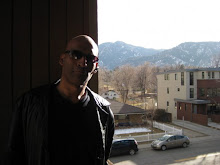(I'm sure this topic has probably come up in other places, but I'm new here, so it's my turn.)
As I see the word nite appearing with increasing frequency, the writer in me cannot help but cringe. However, the programmer in me looks at that as an efficient way to spell a word that, given its spelling, should not sound like that. Any Monty Python fan will tell you that knight is pronounced kinnigget! (Yes, you need the exclamation point ... and a French accent too.) Being in Shakespeare plays has taught me that we used to pronounce the "ed"s when we made things past tense. So I'm going back and forth on whether "night" should evolve into "nite". The pronunciation is clearer when you read it.
I think the question that haunts me is "Where does it stop?" Will we pick up a novel one day and read: "Tonite ur life will becum what u hopd 4," sed Annie." and accept this as prose? I don't mean anytime soon (I hope not anytime soon) but say 50 or 100 years from now. It's a scary thought, but think of what someone from Shakespeare's time would say if (s)he read a book today.
There's an American joke that asks why "snow plow" doesn't rhyme. Hmmm, maybe because it's snow plough? But then shouldn't "plough" rhyme with "though"? Argh! Maybe we should spell it "snoe plow". I know I'm rambling, but the thing I'm getting at is, can we force the evolution of English in a direction that makes sense? I don't want to spell "your" and "you're" as "ur". Enough people don't know the difference already, and I don't want to have to decode the book I'm reading. I can learn to spell colour and honour without "u"s (as much as it hurts) but I think we have to draw a line somewhere.
"Ain't" is in the dictionary. Has anyone seen used in prose and not just as dialogue? Because apparently it's allowed now. And with blogs becoming a standard information source, and many bloggers either not doing or not having the resources to do a proper edit, bad spelling and grammar is being read and learned from a new group of "officials" and accepted as correct. I can't tell you how many news articles I've read online have made me cringe. Half the time I don't want to comment on the article, but on the writer's lack of skill with writing. I just don't want to appear anal to everyone by saying, "Guy, 'Their massing troups along the boarder' is just so wrong!" when the concern should be the imminent war. (I'm also hoping I haven't made too many errors in this post while complaining about them.)
So just where is our language headed? Your thoughts?
skip to main |
skip to sidebar

About Me

- ShirazTheAuthor
- I'm a software developer who loves to write. Or maybe I'm a writer who loves to develop software. It's pretty hard to tell these days.

No comments:
Post a Comment